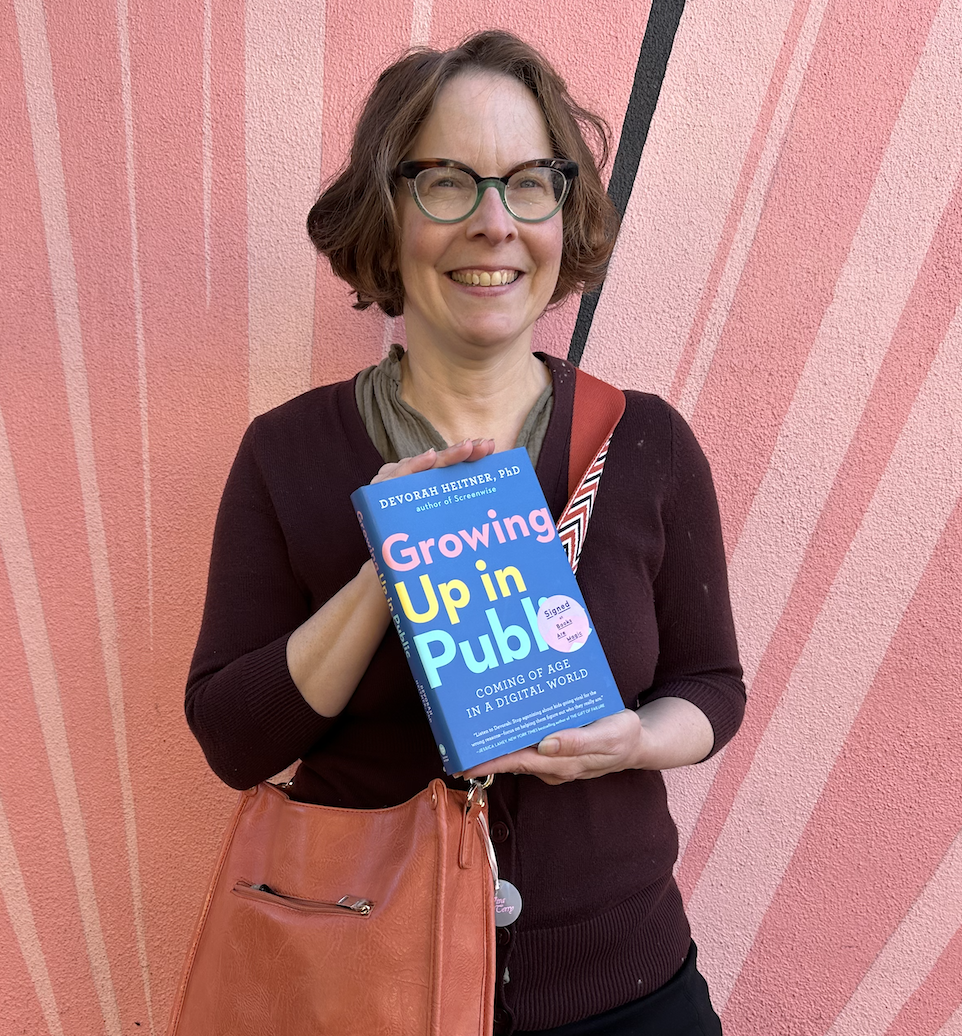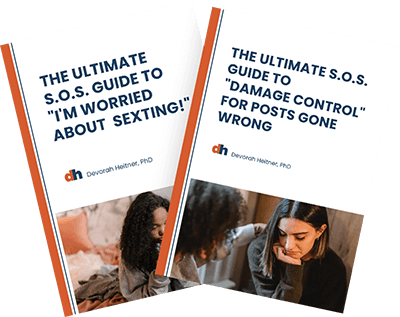I just spent the last five years interviewing tweens and teens for my new book, Growing Up in Public: Coming of Age in a Digital World.
Every few months, it is smart to do a social media audit. This is a good idea for adults and teens. Check in. How are you feeling about the apps and connections you have? Do you need to clean up your contacts? Sometimes we go to social media for that emotional boost and it doesn’t make us feel great.
- Remind kids that what they’re seeing on social media is a highlight reel and talk to them if you see them filtering or editing their photos. Remember everyone is sharing their “mountaintop moments” not the boring day-to-day moments that life is made of. That’s why some kids love to take intentionally “ugly” or “random” photos on apps like SnapChat–to counter the “perfect world” that some feel pressured to share on apps like Instagram.
- Resist the urge to simply take away their access to social media if they post something you don’t like – it’ll just make them unlikely to come to you when / if they’re struggling with it. Also, I worry about kids in that situation going underground. Instead, work with them on how they can take down an ill-considered post and move forward and repair if relationships need mending.
- We’ve all seen videos or posts that make us feel left out. When it comes to FOMO, teach your kids that we can’t expect to be included in everything, all the time, but also we get it. No fun. If you can convince them to try to get their friends to not location share on apps that encourage that, they can try to lead the change…But many teens feel like they don’t want to “be invisible” in that way. We can help them brainstorm things they can do when they’re having FOMO this blog post.
- Since social media and adolescents could potentially factor into body image issues, keep this in mind when sharing photos on social media. Considering posting more facial photos or photos where their body isn’t the main focus (ie everyone sitting around a campfire in their hoodies.) Some teens are so aware that someone may take and post a picture of them at any time that they try to look good all the time, just in case. Especially during the tween and teen years, to avoid giving kids too many body photos to potentially over-focus on, consider sharing more face photos or pictures where their bodies aren’t the focal point. This applies to kids of all genders!
We want to balance the connection and fun we can find in social media with other ways of connecting including pushing ourselves out of our comfort zone to try new things and meet new people. Everything in balance. If scrolling makes you feel envious, what can you do to use that information? Maybe you can’t be on vacation right now, but you can research something you plan to do in the future or plan a really fun local outing that scratches some of your travel itch.
For me, visiting a new neighborhood in Chicago or revisiting a place I haven’t been in years can scratch that travel envy/itch. Bottom line: If scrolling hurts: take a break, put away your phone, and tap into something different. A book, doodling, a board game, a walk, cleaning out a closet to find hidden treasure or to make more space. We want to be intentional with our time.
I hope these tips are helpful. Read Growing Up in Public for more!


